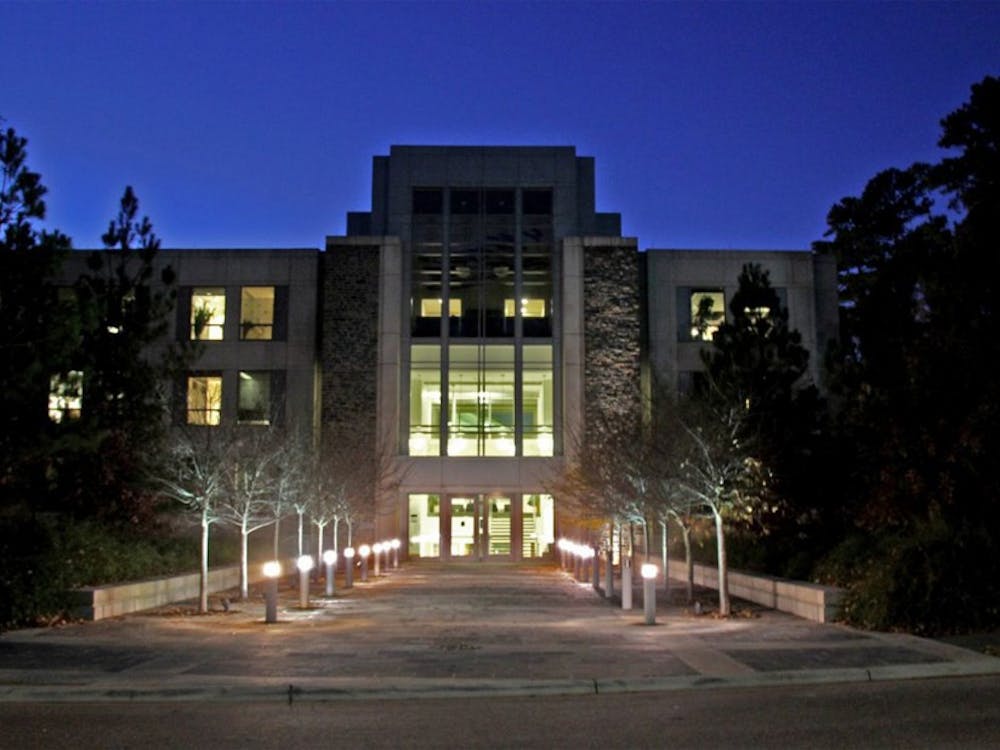Bill Boulding, dean of the Fuqua School of Business, led the development of an open letter to the Trump administration addressing the need for immediate immigration reform.
Boulding chairs the board of the Graduate Management Admission Council (GMAC), the organization that headed the composition and publication of the letter. Fifty business school deans and thirteen CEOs signed the letter. It was initially featured in the D.C. edition of the Wall Street Journal in the form of a full-page advertisement.
“Because the U.S. has such a high demand for talent and because it will be critical for the development of our economy in the next decade, I decided to organize an effort of deans and CEOs to explain the urgent need for immigration reform as a matter of economic interest,” Boulding wrote in an email to The Chronicle.
The letter emphasized the threats posed to the American economy due to current administrative policies reducing the number of high-skilled immigrants entering the country.
“We do not believe the U.S. has the high-skill talent it needs, nor does it have the capacity to train enough people with those skills,” the letter explained. “Without a substantial change in our approach, this deficit of skills will hinder economic growth.”
Boulding told the Washington Post that the need for high-skilled immigration is even more crucial right now because the United States is currently “in the middle of the fourth industrial revolution.”
The letter additionally criticized the “combination of our outdated laws, artificial regional and skills-based caps on immigration, and recent spikes in hostility” that are limiting the flow of high-skilled immigrants to America in a time when they are greatly needed.
Prior to the open letter, GMAC composed a white paper entitled “Early Warning Signals: Winners and Losers in the Global Race for Talent.” As explained in a Fuqua press release, the paper examined trends regarding the flow of talent into the United States, United Kingdom, Canada, India and China, with a particular focus on the United States.
According to the report, only 85,000 H-1B visas—for temporary workers in specialized areas— are available each year. In 2004, the cap was at 195,000 visas. With 190,098 H-1B petitions being filed in 2019, the GMAC found that the demand for these visas significantly exceeds the supply each year.
“As the United States does not have a large enough domestic supply of talent—particularly in STEM fields—to meet the demand, it is tough to make a credible case that H-1B visa holders are taking jobs from American citizens,” the paper stated.
According to Professor of Economics Connel Fullenkamp, this is not an entirely new trend in the American workforce.
“It is only a relatively recent phenomenon that the total number of job openings has exceeded the number of people looking for work in the U.S.,” Fullenkamp said. “Nonetheless, it has long been the case that the number of openings for relatively high-skilled jobs has exceeded the number of people who are qualified for those jobs.”
In America, application rates for high-skilled H-1B visas fell in 2018, according to a report by the American Immigration Lawyers Association. Furthermore, those who are applying to receive H-1B visas are experiencing significantly higher rejection rates. The 6% denial rate in 2015 has now reached 32% as of 2019, according to the National Foundation for American Policy.
Along with jobs, interest in American business schools from international students has also declined in recent years. In 2019, only 50% of international business school applicants considered studying at an American institution, down from 62% in 2018.
“We are seeing other regions of the world with more welcoming immigration policies acquire talent that has traditionally been interested in locating in the U.S. Canada is one example,” Boulding explained in his email. “Without immigration reform, that trend will continue.”
In President Donald Trump’s State of the Union Address in 2018, he called for a “merit-based immigration system—one that admits people who are skilled, who want to work, who will contribute to our society and who will love and respect our country.”
However, critics of Trump find that he has not worked towards achieving this system. A report from the American Immigration Lawyers Association (AILA) shows that during his presidency, Trump has established multiple policies aimed at “slowing or stopping the admission of foreign workers and entrepreneurs to the United States.”
According to the report, H-1B visa petitions now require a larger number of interview requirements and additional evidence. Attempts have been made to revoke policies enacted under the Obama administration aimed at assisting high-skilled immigrants, such as the work authorization policy that enabled the spouses of high-skilled immigrants to obtain employment authorization.
However, Boulding stressed in his email that the need for reform does not only apply to only high-skilled immigrants. The signees believe that other areas of immigration reform are also crucial.
“There also seems to be consensus from lawmakers on the need for things like more H-1B visas for students to be able to work in the U.S. post-graduation,” Boulding wrote. “Therefore, high-skilled immigration reform seems like a good area to start with in hopes of driving reform in other areas of immigration policy that are also important.”
Get The Chronicle straight to your inbox
Signup for our weekly newsletter. Cancel at any time.

Leah Boyd is a Pratt senior and a social chair of The Chronicle's 118th volume. She was previously editor-in-chief for Volume 117.

